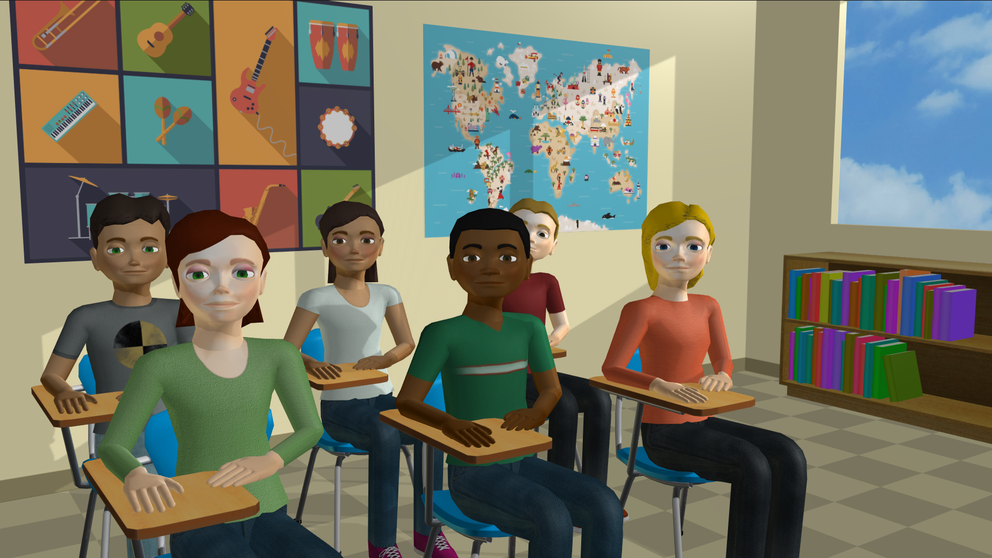Penn State Explores AI in Teaching
University faculty members are developing a device, First Class, that uses artificial intelligence to help pre-service teachers practice student engagement techniques.
Faculty members at Pennsylvania State University are exploring how artificial intelligence (AI) can be used to provide immersive opportunities for student teachers. The team is developing AI-driven virtual classrooms, where pre-service teachers can practice student engagement techniques.
Ann Clements, an associate professor and graduate program chair for music education at the School of Music, is leading the effort and working with members of Teaching and Learning with Technology (TLT) at Penn State to develop the AI classroom prototype, known as First Class. The device uses Microsoft Kinect, a motion-sensing input device, and utilizes rows of virtual students in a classrooms.

Source: Penn State.
In a pilot test, Clements had a student test three modules of First Class, which resulted in the student making personal connections with the virtual students.
"This technology provides students with an immersive experience where they can make meaningful mistakes in a low-stakes environment," Kyle Bowen, director of TLT, told Penn State News. "Through repetition and practice in a virtual classroom, future teachers can find their voice and make the most of time in the live classroom."
Clements told Penn State News that she sees other uses for the technology, such as “providing the student with extreme teaching conditions that pose ethical or moral dilemmas." "Just things that a typical student teaching experience might never provide, so education students are prepared when they do happen in the future," she said.
Bowen also foresees the technology being used for other applications. "While designed with teacher education in mind, this platform has a wide variety of applications ranging from public speaking to intercultural awareness," Bowen said.
The team is actively seeking research partners to help expand and explore this new technology. Further information is available is on the Penn State site.
About the Author
Sri Ravipati is Web producer for THE Journal and Campus Technology. She can be reached at [email protected].